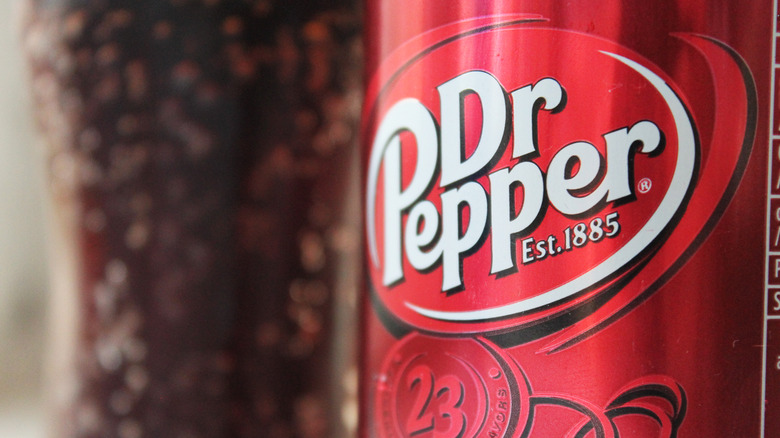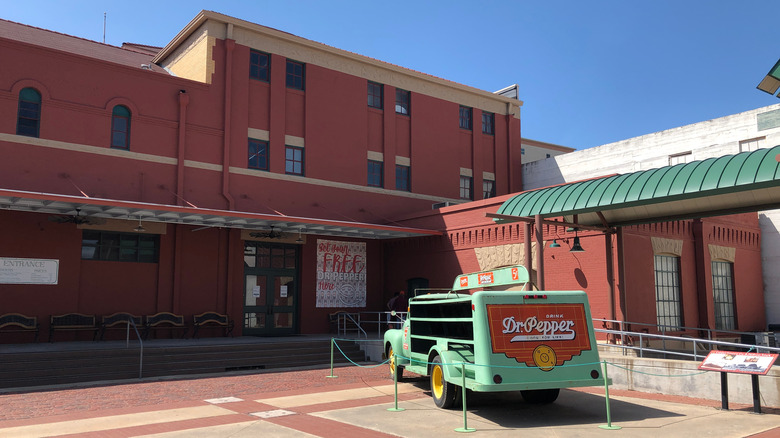The Texas Court Ruling That Helped Dr Pepper Become A Household Name
There's something about the humble American drugstores of the late 1800s that inspired whimsical, candy-coated innovation. From the creation of Coca-Cola to ice cream sundaes, the small-town pharmacy became the unlikely hub of culinary experimentation (Digital Public Library of America). And the reason? The good old drugstore soda fountain, of course, where customers could hang out to enjoy ice cream, shakes, and fizzy drinks. So it was a natural progression for druggists, who mixed medicinal powders and liniments on the pharmaceutical side of the business, to begin experimenting with things like mixing sweet syrups and carbonation.
And this is exactly how Dr Pepper came about. According to the Texas State Historical Association, the drink was invented in 1885 by pharmacist Charles Courtice Alderton in the Old Corner Drug Store in Waco, Texas. It's said that in quiet moments when he wasn't filling prescriptions, Alderton liked to experiment with soda recipes. And we're not talking two or three fruit extracts here — no, Alderton took carbonated alchemy much more seriously than that. So much so that he eventually concocted a soda of no less than 23 flavors, which was worth the effort as customers adored it. And although he initially dubbed his invention "Waco," he eventually settled on the name Dr Pepper. Some say it was in honor of his friend, Dr Charles Pepper, while others said it was a reference to the energizing "pep" that the sugary drink supposedly gave you (via Thought Co).
Why Dr Pepper almost never left Texas
Over 135 years later, this enticingly odd soda pop is the stuff of hot summer days and midnight cravings. Sip it, and you will detect notes of root beer, cherry cola, and something slightly medicinal. You might also notice a hint of licorice, a whisper of prune, and a touch of amaretto. Indeed, part of the charm of the concoction is its many nearly-indistinct flavors.
Yet if it hadn't been for a fateful court ruling, we might never have got to taste Dr Pepper. As outlined by the Texas State Historical Association, the drugstore drink proved to be such a hit that by 1891, it was being manufactured commercially. Yet it remained a regional thing until 1963, when the company hit a wall after trying to expand nationwide. The issue being — was Dr Pepper actually a cola or not?
At that time, many independent bottlers in the U.S. had strict licensing contracts with Coca-Cola and Pepsi, stating that they weren't allowed to offer bottling services to rivals. So the Dr Pepper Company needed to prove that it wasn't a cola drink, launching a legal case to do so. Thankfully, a Dallas district court agreed, ruling in favor of the brand. Coast-to-coast expansion followed and nowadays, it's the fourth biggest soft drink in the U.S. (via Caffeine Informer).
So there you have it, enshrined in law — whatever Dr Pepper actually is, it's definitely not just an eccentric, offbeat cola.

